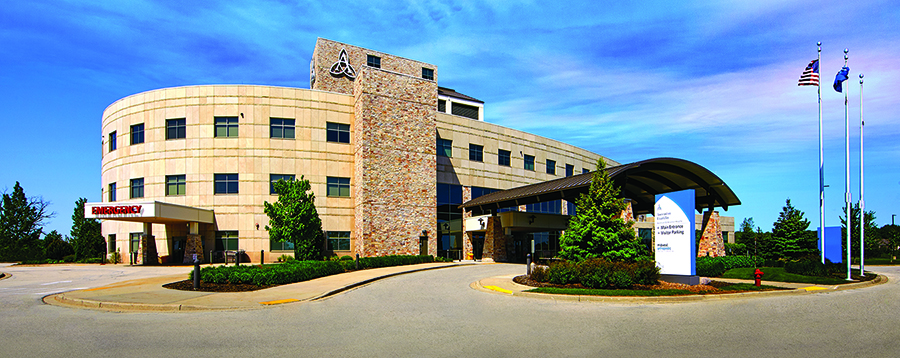 Ascension SE Wisconsin Hospital - Franklin Campus
Ascension SE Wisconsin Hospital - Franklin CampusTransportation is often cited as a barrier to access medical care. During the pandemic it became an even greater challenge for people who were ill with COVID-19 but still needed to get to appointments or find a way home when they were discharged from the hospital. Due to the highly contagious nature of COVID-19, taxi and rideshare providers were unable to transport patients who tested positive—or were waiting for COVID-19 test results. Family members and friends were also uneasy providing rides out of fear they could get sick from their loved one.
Normally, Ascension Franklin works with taxi and rideshare vendors to provide transportation when needed for non-emergent patients who are released from the hospital. But these were not normal times, and the lack of options created a problem for patients and hospitals but also created an opportunity for Ascension Wisconsin to think outside the box and come up with an innovative solution.
With most sports activities on hiatus, Mark Alberg, orthopedic service line director, Ascension Wisconsin, volunteered his athletic trainers for the job. The athletic training team already had a 14-passenger van that provided care for sports teams. The athletic trainers retrofitted it with a barrier between the driver and passengers. Ascension Wisconsin also provided an ambulance, which already had safety features in place. All volunteers were given specialized training before participating in the program.
Instead of driving athletes to peak performance, Ascension Wisconsin athletic trainers drove grateful COVID patients 24/7 to and from multiple hospitals across the state when the need was greatest. As the demand decreased, the team continued to provide patient transport from 6:00 a.m. to midnight daily.
“This opportunity gave us insight into what goes into hospital care, and it fostered a lot of goodwill between our teams,” said Alberg. Many COVID-19 patients were also in need of dialysis. So, along with home transports, the team drove many of these patients to their regular dialysis appointments. In addition, in the Fox Valley, athletic trainers focused on helping patients in wheelchairs, who struggled to find transportation with more complex needs, get home from the hospital or to their appointments.
“We wanted to reduce stress for families and patients. It was a difficult time for them, and it was great to ease their minds by providing safe rides,” said Alberg. “It’s nice to work for an organization that thinks creatively and I’m grateful to our team who made an impact by stepping up in a big way and were willing to support this effort.”